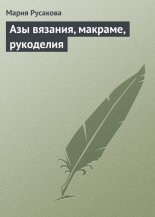Английский язык. Ирландские волшебные сказки / Irish Fairy Tales Ламонова Ольга

Читать бесплатно другие книги:
Большинство людей по тем или иным причинам хотят иметь дачу. Те, кто стали счастливыми ее обладателя...
Вы колеблетесь, приобретать дачу или нет? Раздумываете над вопросом: «Можно ли разбогатеть, выращива...
Баня близка сердцу каждого русского человека. Это не просто место, где можно помыться, но и настоящи...
Данная книга является настоящей энциклопедией рукоделий. Она станет прекрасным подарком для любой же...
Мы предлагаем вашему вниманию удивительную книгу, в которой вы найдете ответы на вопросы: «Что такое...
Настоящее издание – коллективный монографический труд, посвященный проблемам организации публичной в...






